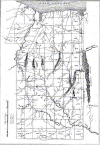Portal:Law/Selected cases/16
Seneca Nation of Indians v. Christy, 162 U.S. 283 (1896), was the first litigation of aboriginal title in the United States by a tribal plaintiff in the Supreme Court of the United States since Cherokee Nation v. Georgia (1831). It was the first such litigation by an indigenous plaintiff since Fellows v. Blacksmith (1857) and its companion case of New York ex rel. Cutler v. Dibble (1858). The New York courts held that the 1788 Phelps and Gorham Purchase did not violate the Nonintercourse Act, one of the provisions of which prohibits purchases of Indian lands without the approval of the federal government, and that (even if it did) the Seneca Nation of New York was barred by the state statute of limitations from challenging the transfer of title. The U.S. Supreme Court declined to review the merits of lower court ruling because of the adequate and independent state grounds doctrine.
According to O'Toole and Tureen, "Christy is an important case in that it revived the concept that states had special powers to deal with Indian tribes within their borders."
Although the case has not been formally overruled, two Supreme Court decisions in the 1970s and 1980s have undone its effect by ruling that there is federal subject-matter jurisdiction for a federal common law cause of action for recovering possession based on the common-law doctrine of aboriginal title. Moreover, the New York courts' interpretation of the Nonintercourse Act is no longer good law. Modern federal courts hold that only Congress can ratify a conveyance of aboriginal title, and only with a clear statement, rather than implicitly. (Full article...)

